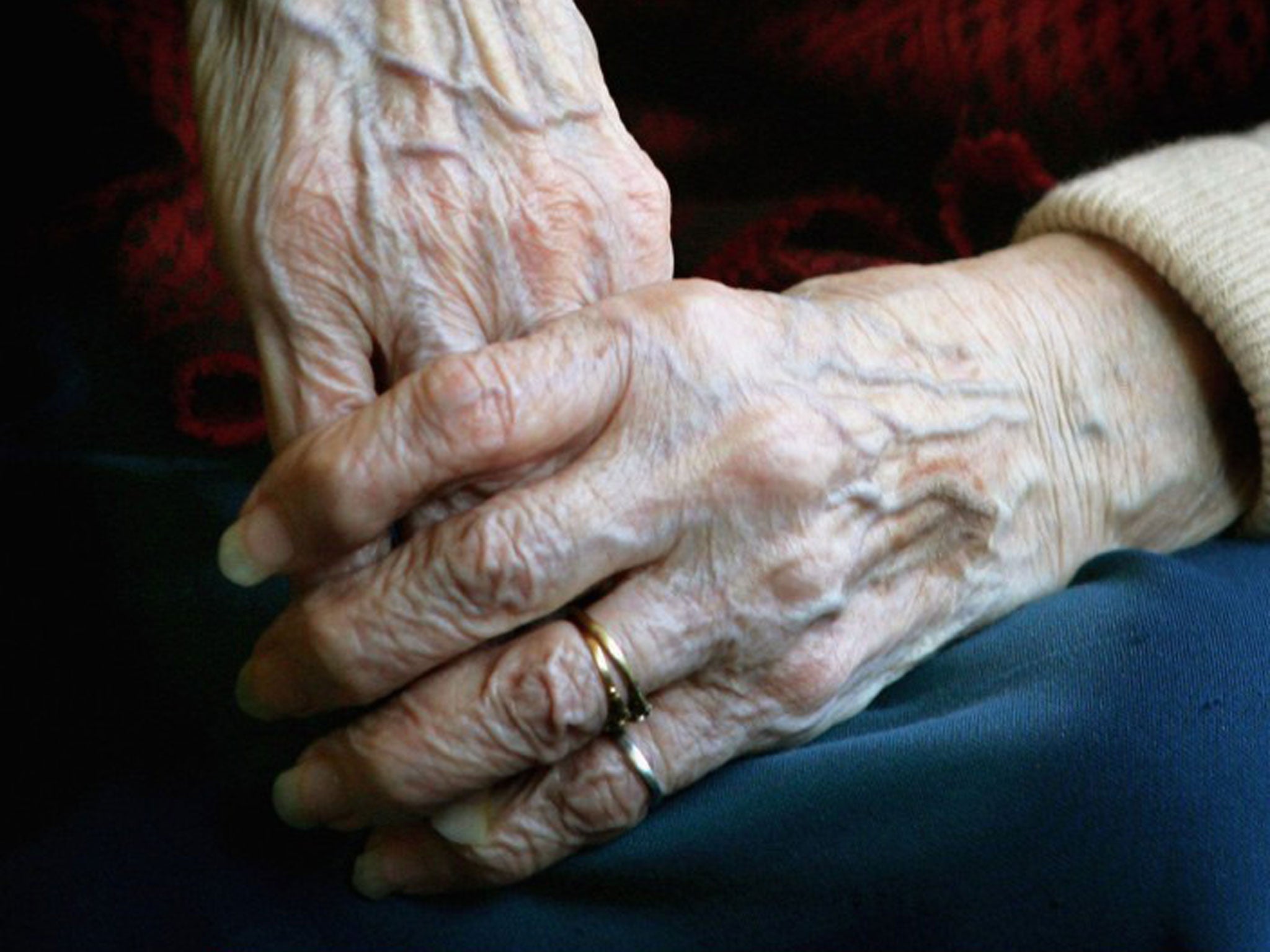Britain must do more to protect growing population of over-100s

Your support helps us to tell the story
From reproductive rights to climate change to Big Tech, The Independent is on the ground when the story is developing. Whether it's investigating the financials of Elon Musk's pro-Trump PAC or producing our latest documentary, 'The A Word', which shines a light on the American women fighting for reproductive rights, we know how important it is to parse out the facts from the messaging.
At such a critical moment in US history, we need reporters on the ground. Your donation allows us to keep sending journalists to speak to both sides of the story.
The Independent is trusted by Americans across the entire political spectrum. And unlike many other quality news outlets, we choose not to lock Americans out of our reporting and analysis with paywalls. We believe quality journalism should be available to everyone, paid for by those who can afford it.
Your support makes all the difference.Britain needs to transform the way it looks after its oldest people, expanding care home capacity to meet the needs of rising numbers of “survivors” who live be 100 or more, experts have said.
The number of centenarians living in the UK has almost doubled in the past decade, and is expected to reach an astonishing half a million by 2066.
In one of the first studies to assess the particular health and social care needs of the over 100s, researchers from Kings College London found that too many centenarians were dying in hospitals, largely because of their increased vulnerability to infections such as pneumonia.
Dr Catherine Evans, clinical lecturer in palliative care at Kings, who led the research, said that Britain needed to be expand the number of care home beds to keep frail patients out of hospital.
“Centenarians have outlived death from chronic illness, but they are a group living with increasing frailty and vulnerability to pneumonia and other poor health outcomes,” she said. “We need to boost high quality care home capacity and responsive primary [GP] and community health services to enable people to remain in a comfortable, familiar environment in their last months of life.”
The analysis looked at the cause and place of death for nearly 36,000 centenarians who died in England between 2001 and 2010, and compared the findings to people in their 80s and 90s who died in the same period.
The main causes of death changed with increasing age. Elderly people in their 80s and 90s were far more likely to die from a long-term condition, such as heart or respiratory diseases.
Among centenarians, however, the most common cause given on a death certificate was "old age", which accounted for 28 per cent of deaths, and pneumonia, which was given in as the cause in 18 per cent of deaths.
Caroline Abrahams, charity director at the leading charity Age UK, said Britain’s “oldest old” required a health system “attuned and more sensitive in caring for people with complex needs”.
“Planning care, whether day-to-day or at the end of life, is often patchy and uncoordinated,” she said. “This can lead to a sudden deterioration in health, demonstrated by the causes of death described in this report and increasing the likelihood of dying in hospital – which is not what most people want. It is vital the NHS adapts to the needs of older people – among those who rely on health and care services the most.”
Join our commenting forum
Join thought-provoking conversations, follow other Independent readers and see their replies
Comments